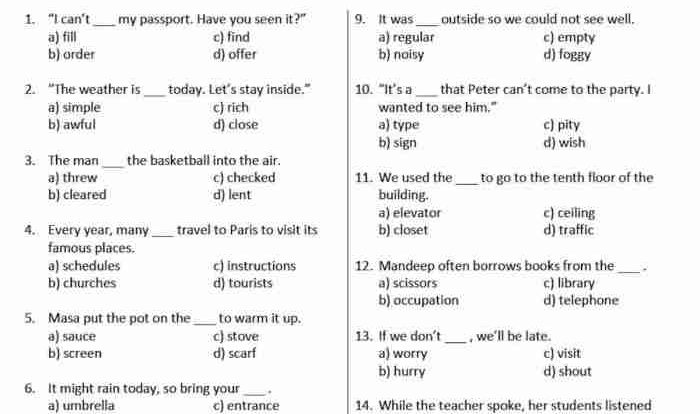Antonym of perennially 12 letters – Antonym of perennially, a 12-letter word that stands in stark contrast, takes us on a linguistic adventure. Delve into the realm of opposites as we uncover the meaning, usage, and captivating cultural impact of this enigmatic term.
Unveiling the nuances of perennially and its antonym, we’ll explore their etymological roots, revealing the stories embedded within their origins. Prepare to expand your vocabulary and deepen your understanding of the English language.
Synonyms of Perennially
The term “perennially” means something that happens or exists constantly or for a very long time. Synonyms for “perennially” include:
Constantly
- Continuously:without interruption or pause.
- Unceasingly:without stopping or ending.
- Endlessly:without any limit or end.
- Perpetually:lasting forever or for an indefinitely long time.
Regularly
- Repeatedly:occurring or happening again and again.
- Frequently:happening or occurring often.
- Habitual:done or occurring regularly or as a habit.
- Customarily:done or happening according to a custom or tradition.
Antonyms of Perennially: Antonym Of Perennially 12 Letters
The word “perennially” means “lasting for a long time” or “occurring regularly.” Its antonyms, therefore, are words that mean “lasting for a short time” or “occurring irregularly.”
Here is a list of antonyms for the word “perennially”:
Temporarily
- Temporarily means “for a short time.” It is the opposite of “perennially” because it refers to something that does not last for a long time.
Intermittently
- Intermittently means “occurring at irregular intervals.” It is the opposite of “perennially” because it refers to something that does not occur regularly.
Sporadically, Antonym of perennially 12 letters
- Sporadically means “occurring at irregular intervals.” It is the opposite of “perennially” because it refers to something that does not occur regularly.
Usage of Perennially and Its Antonyms
Perennially and its antonyms are used in various contexts to describe the frequency or duration of events, conditions, or characteristics. Here’s a table comparing their usage:
| Word | Meaning | Usage | Example |
|---|---|---|---|
| Perennially | Continuously or persistently | Describes something that happens or exists for a long time without interruption. | The town is perennially known for its beautiful gardens. |
| Sporadically | Occurring occasionally or irregularly | Describes something that happens or exists at irregular intervals. | The rain has been sporadic this summer. |
| Intermittently | Occurring at irregular intervals, with breaks or pauses | Describes something that happens or exists with interruptions. | The power supply has been intermittent lately. |
| Occasionally | Happening or existing sometimes, but not regularly | Describes something that happens or exists from time to time. | I occasionally go for walks in the park. |
| Temporarily | For a limited or short period of time | Describes something that happens or exists for a while but not permanently. | The road was temporarily closed due to construction. |
Etymology of Perennially
The word “perennially” has its roots in the Latin language, specifically from the word “perennis”, meaning “lasting through the year” or “everlasting”.
The term “perennial” initially referred to plants that live for more than two years, continuing their life cycle year after year. Over time, its usage expanded to describe anything that lasts for a long time or occurs repeatedly.
Origin’s Influence on Meaning
The etymology of “perennially” sheds light on its inherent meaning of persistence and longevity. The word’s Latin origin suggests an enduring quality, whether in the context of plants, natural phenomena, or abstract concepts.
When we use “perennially”, we imply something that is ongoing, continuous, or frequently recurring. It captures the idea of something that persists despite the passage of time or changing circumstances.
Cultural Impact of Perennially
The word “perennially” has had a significant cultural impact, particularly in the realms of literature, art, and music. Its enduring presence in these fields reflects the word’s evocative power and its ability to capture the essence of lasting qualities.
Literature
In literature, “perennially” has been employed to describe characters, themes, and stories that transcend time. From Shakespeare’s immortal “Romeo and Juliet” to Jane Austen’s beloved “Pride and Prejudice,” perennially popular works of fiction continue to resonate with readers generation after generation.
Art
In the realm of art, “perennially” has been used to characterize enduring styles, motifs, and masterpieces. The Mona Lisa’s enigmatic smile, for instance, has captivated art enthusiasts for centuries, making it a perennially iconic work.
Music
In the world of music, “perennially” has been used to describe songs, albums, and artists that have stood the test of time. From The Beatles’ “Yesterday” to Bob Dylan’s “Blowin’ in the Wind,” perennially popular songs continue to be cherished and performed by musicians and audiences alike.
Query Resolution
What is the antonym of perennially?
The antonym of perennially is intermittently, which means occurring at irregular intervals or in an unpredictable manner.
How is perennially used in a sentence?
Perennially can be used in a sentence to describe something that happens or exists continuously or regularly over a long period of time. For example, “The town has perennially struggled with flooding during the rainy season.”
What is the etymology of perennially?
Perennially originates from the Latin word “perennis,” meaning “lasting throughout the year.” It entered the English language in the 16th century and has since been used to describe things that are enduring or long-lasting.
